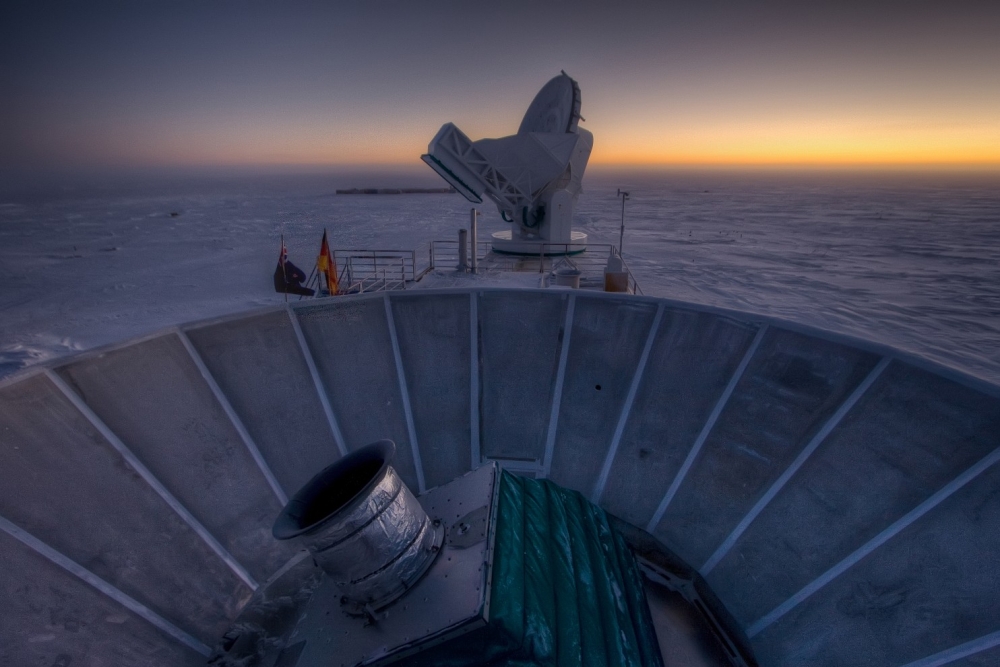Dazzling ‘discovery’ of gravitational waves from the Big Bang goes poof with new data
06 June, 2015
The sun sets behind BICEP2, in the foreground, and the South Pole Telescope, in the background. (Steffen Richter/VagabondPix.com)
A new analysis has dynamited a much-hyped discovery of “gravitational waves” from the dawn of time. What had seemed to be a major breakthrough in cosmology, one that incited loose talk of Nobel prizes, now appears to have been a case of scientists over-interpreting their data.
Last March, in a highly anticipated news conference at Harvard, scientists with an experiment called BICEP2 revealed that their South Pole telescope had scanned the background radiation of the universe and made a dazzling discovery: The ancient light had apparently been polarized by gravitational waves emitted in the initial moment after the Big Bang, when the tiny, dense universe expanded violently.

There are no published comments.
New comment